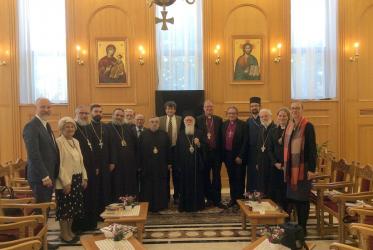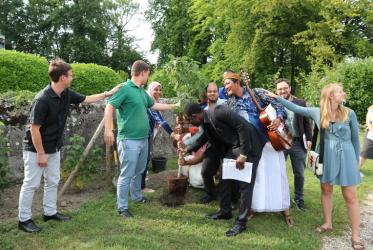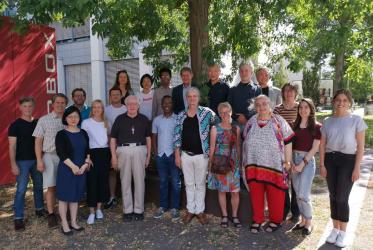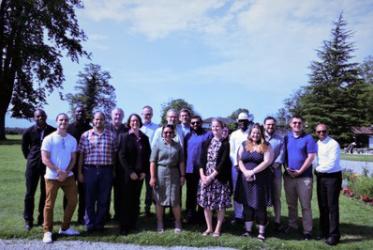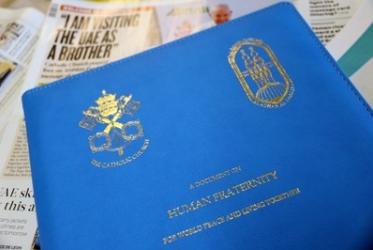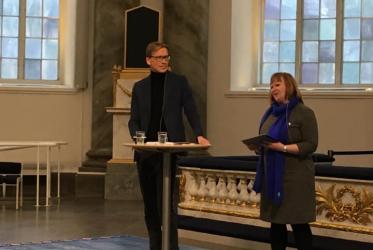Displaying 21 - 40 of 128
Archbishop Anastasios receives Klaus Hemmerle 2020 Prize
19 February 2020
Lutheran-Orthodox dialogue commission meets in Albania
11 October 2019
WCC congratulates Bishop Miguel Ayuso on nomination as cardinal
09 September 2019
Role of religion being questioned in public event in Norway
14 August 2019
Bossey students explore the meaning of “belonging”
22 July 2019
Christian-Buddhist Conference in Germany
05 July 2019
Bossey gathers students for interreligious dialogue
02 July 2019
Ecumenism is a sense of belonging
08 February 2019





